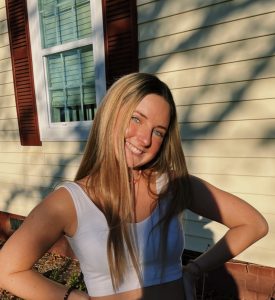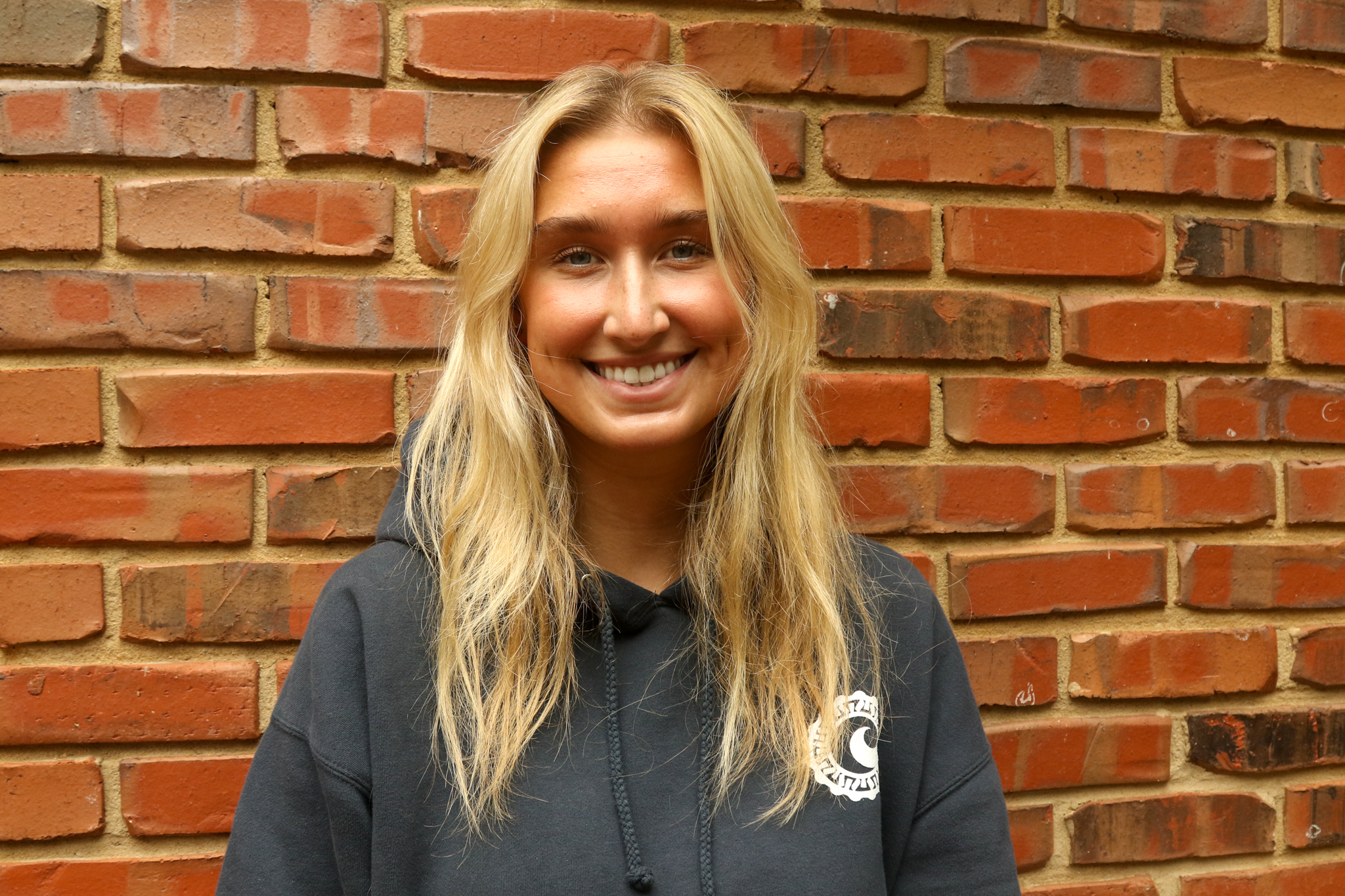Beyond Spellcheck: How to Self-Revise a First Draft in a Time Crunch

Hi! My name is Zoë Rein and I’m a junior majoring in English with Teacher Licensure and Math with a minor in TESOL. Outside of The Writing Center, I’m an Honors Fellow doing research on writing and a director of Alternative Breaks!What is the last thing I feel like doing after writing my first draft? Writing the next one. Going through the process of reading confusingly organized paragraphs, half-formulated ideas, and repetitive sentence structures is uncomfortable and painful. Sometimes, I think to myself that the first draft is “good enough,” and I can turn it in as is. Especially during those late nights or last-minute moments where The Writing Center and my friends are all asleep, it becomes easier to turn away and condemn the paper to its unrevised stage. Yet, that early draft stage won’t pack as much of a punch as a well-organized, thought-out, and properly designed paper….
Read MoreOne Writing Center Consultant’s Process for Writing a Literary Analysis Thesis Statement

Cailey Rogers is a class of 2024 Writing Center consultant. She is studying Journalism and English Literature. At Elon, she is a Communications Fellow and is involved in Elon Learning Assistance, Colonnades Literary and Art Journal, and the Pendulum. In my short time at Elon, I have found that the most challenging and rewarding part of writing a long literary analysis paper is the thesis statement. It’s funny how just one small portion of what can become an eight-page essay seems impossible to accomplish. If you feel that way, you are certainly not alone. Even English majors struggle with it – I can say that from personal experience! That is exactly why I decided to share the tips and processes that have helped me the most when writing a literary analysis thesis statement in hopes that it could help others staring at a blank document, not knowing where to start…
Read MoreHow to Write an Effective Literary Analysis Thesis Statement

Cailey Rogers is a class of 2024 Writing Center consultant. She is studying Journalism and English Literature. At Elon, she is a Communications Fellow and is involved in Elon Learning Assistance, Colonnades Literary and Art Journal, and the Pendulum. I distinctly remember that when I was in middle school and just beginning to learn how to write essays, the most daunting task was crafting a thesis statement. Back then, my teachers would put so much emphasis on one part of the entire paper; now that I’m in college, I understand why. Writing a thesis statement hasn’t become easier over time for me. In fact, now that I am writing complex papers for my 3000-level classes, it has proved to be even more challenging. But honestly, I have come to appreciate this part of a paper to the point where I cannot write the body paragraphs of my work until I…
Read MoreHow to Face and Conquer Writer’s Anxiety

Hi, I’m Sofie Campbell. I’m a member of the class of 2024, double majoring in Marketing and English Literature and minoring in Professional Writing and Rhetoric. I also work as a Writing Center Consultant. There comes a time in every writer’s life when they must do the unthinkable: allow someone else to read their writing. It happens to the best of us, myself included. Sharing your writing for the very first time can be an intimidating prospect, especially when first entering college. It can sometimes be an uncomfortable experience, especially if you’re prone to writer’s anxiety. What’s writer’s anxiety? Here’s some common scenarios: “I sit down but then choke.” “I paralyze myself by overthinking.” “I feel completely unprepared.” “I’m terrified that my ideas won’t be good enough.” If you’ve ever experienced one of these thoughts before writing or during writing, it may have been writer’s anxiety. This can lead to writer’s…
Read MoreConsidering Audience When Writing

Hi! My name is Caroline Murphy and I’m an English major with a concentration in education with a minor in TESOL. I’m a member of class of 2024 and work as a consultant in the Writing Center. There’s a lot to consider when beginning the process of writing, whether you’re writing for an assignment or your own enjoyment. When starting to write, one question that’s important to ask yourself is: “Who am I writing for?” The person or group of people you expect to read your work, and therefore who you’re writing for, is your audience. In this blog, I’ll be discussing some helpful tips for how you can consciously consider your audience while writing. The easiest audience to identify is yourself. Whether you’re journaling, making a to-do list, or doing other personal writing, you’re your own audience. However, if you’re writing for another person or group of people, you…
Read MorePassive vs. Active Voice

Hi, I’m Ellie Banfield, a class of 2024 Writing Consultant. I’m majoring in English Literature, and I have experience with blogging, creative writing, and professional writing. Have you ever been told to change your writing from passive to active? I know I have, and I also know this can be a frustrating comment to receive if you aren’t sure what the difference is between passive and active voice. If you can relate to this, then you’ve come to the right place. This post will discuss the differences between active and passive voice, and help you avoid confusion in your own writing. Let’s start by making sure we’re clear on what passive and active voice is. In a passive sentence, the subject is acted upon by the verb. For example: Your glasses were broken. We don’t know how the glasses were broken or who broke them, but we do know it’s…
Read MoreReverse Outlining

Hi, my name is Avery and I’m a class of 2024 Writing Center consultant. I’m studying English Literature with a minor in Poverty & Social Justice. At Elon, I’m part of the Honors Fellows program and a member of Danceworks. Have you ever found yourself with a completed draft that doesn’t say what you want it to? Enter: the reverse outline. The reverse outline is a technique for condensing a paper down to its main points. Often, seeing a zoomed out, deconstructed piece can help you see the forest for the trees. The piece will be less overwhelming if you break it down into its component parts, and this technique is useful for eliminating roadblocks. Reverse outlines are great for helping with organization and structure; they can help determine the effectiveness of a thesis statement or main idea and show you the strengths and weaknesses of your argument. To write…
Read MoreThe Expert’s Guide to Multimodal Projects

Hello, my name is Rylee McKinney. I am a Writing Center Consultant and Elon Teaching Fellow. After college, I plan to use my English Education major and minors in Coaching and TESOL to teach high school students. Freshman year of college is a big adjustment, and most of us have been told that college is no walk in the park. We come to college with a thousand worries in our heads. The scariest thought: college papers. However, in the age of technology, the lengthy college paper has begun to take on new forms. Many first years are introduced to the term “Multimodal” in their foundational classes. As a first-year student, I was completely lost when I heard this term for the first time. It was hard to imagine replacing the standard ten-page paper with something more creative. I had spent most of my high school preparing for college papers. I…
Read MoreWriting for Social Media

My name is Jacqueline Dieker, a communications major and senior who graduated in Fall 2021. Happy writing! Engaging Social Media: Why Written Content Matters When you think of social media, what is the first thing that comes to mind? Photos and videos, right? Although visual content is a big part of digital media, writing is also essential. Although social media managers, influencers, and regular users don’t always consider themselves writers, their success and impact relies on the written text in their posts. As a social media manager and senior communications student, I created this post to shed some light on the necessary strategies for writing on social media. Why It Matters As college students, we will undoubtedly have to “sell” our personal brand: how we develop and present our unique public persona. Everything you publish online reflects your personality and views, and therefore might reach future hiring managers (for jobs)…
Read MoreWriting Tips To Make Your Writing More Effective & Enjoyable

It’s harder to stay motivated and engaged when you lack interest in your topic. Here are 4 tips to help you get interested in your writing and to stay on task!
Read More